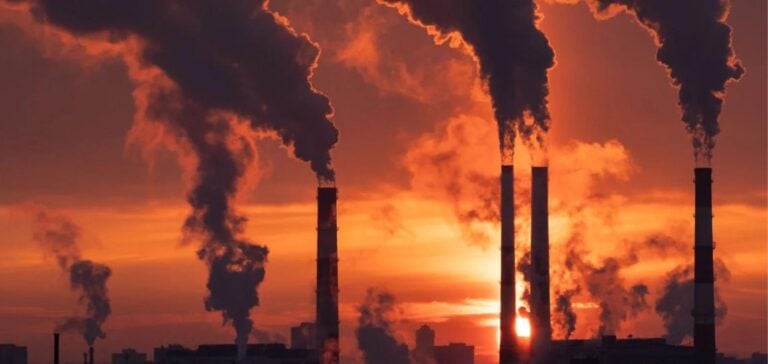According to the International Energy Agency (IEA), global methane emissions from the fossil fuel industry reached record levels in 2023, despite numerous technological advances. These emissions, mainly from gas leaks, require urgent action. In fact, in 2023 alone, around 120 million tonnes of methane were emitted by oil, gas and coal-fired power generation, a slight increase on the previous year. A further 10 million tonnes come from bioenergy, such as wood burnt for cooking stoves.
All these emissions have a serious impact on global warming, methane being the second most important greenhouse gas after CO2.
Record methane emissions: an alarming toll
Despite all the progress made in monitoring methane emissions, the necessary reductions are still a long way off. Methane emissions from the fossil fuel industry remain close to the 2019 record and a long way from the 75% reduction needed by 2030 to keep within the 1.5°C warming limit set by the Paris Agreement, which has been in force since 2016.
According to IEA Chief Economist Tim Gould, there is no good reason why these emissions should remain so high: by 2023, around 40% of the fossil industry’s methane emissions could have been avoided at no net cost, thanks to methane capture and marketing measures. Reducing these emissions by 75% would cost around $170 billion, or less than 5% of the fossil fuel industry’s revenues in 2023, according to the IEA.
Prospects and challenges for the future
Despite these challenges, the IEA remains optimistic about the important policies and regulations announced in recent months, as well as the new commitments made at COP28 in Dubai. Already at COP26, the reduction of methane emissions was on the agenda. Then, at COP28, 52 oil companies pledged to achieve “close to zero methane” in their operations by 2030, while over 150 countries, including Azerbaijan recently, joined the “Global Methane Pledge” initiative, aiming to reduce these emissions by 30% between 2020 and 2030.
What’s more, Christophe McGlade, energy expert at the IEA, points out that two-thirds of the methane emitted by fossil fuel industry comes from just ten countries, with China in the lead for coal methane, and the USA in the lead for oil and gas methane, closely followed by Russia. Methane leaks detected by satellite have increased by more than 50% compared with 2022, representing an additional 5 million tonnes. In this sense, only concrete international cooperation and a serious commitment on the part of companies will enable us to achieve these ambitious goals.
Against a backdrop of growing awareness of climate issues, the IEA stresses the importance of immediate concerted action to reduce methane emissions from the fossil fuel industry and meet the targets set by the Paris Agreement.






















